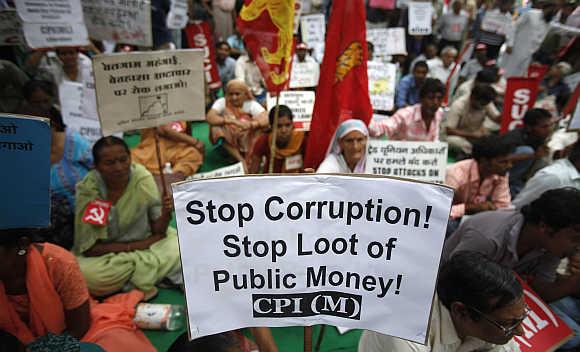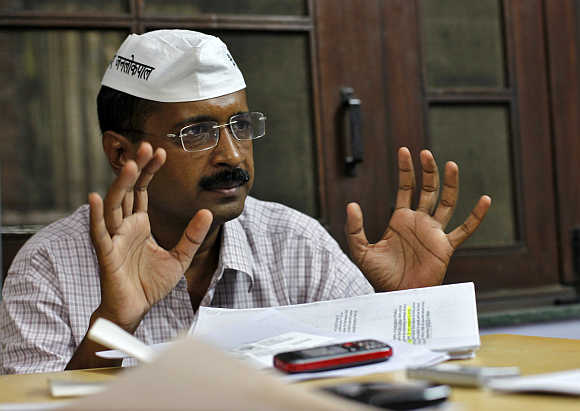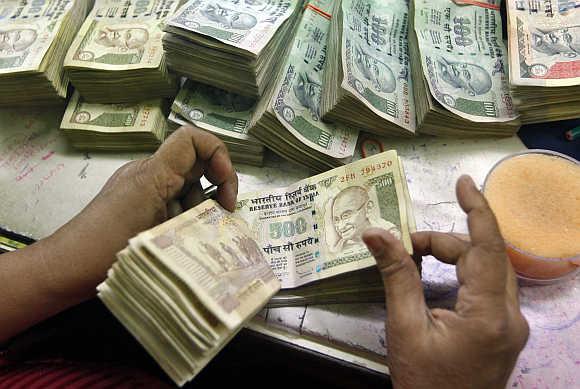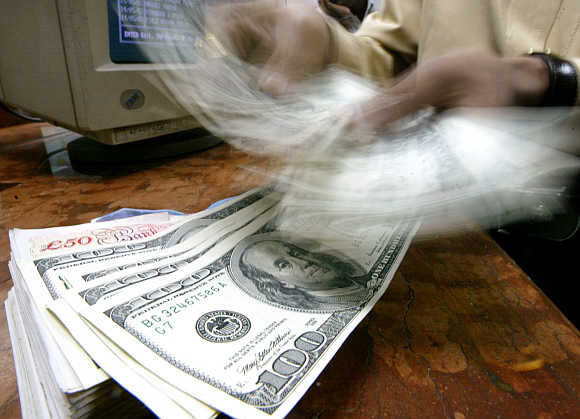 | « Back to article | Print this article |
Are shareholders, directors insensitive to graft?
Those who take corruption as a fact of life cannot fight corruption, says Asish K Bhattacharyya
Recently I had an opportunity to attend a workshop, which was discussing the unethical practices in the pharmaceutical and healthcare sectors.
The workshop focused on many unethical practices starting from lack of transparency in private hospitals to inducing doctors to prescribe costly medicines for the benefit of pharmaceutical companies by giving them gifts and sponsoring their participation to conferences that combine sight seeing and professional education.
There was a long list.
Although I enjoyed the deliberations, those did not provide much insight. All of us have an idea about those practices and those who can afford to bear the health care cost have learned to live with it and weaker sections of the society suffer silently. Some civil societies are fighting to reform the system without any significant outcome so far.
Click NEXT to read more...
Are shareholders, directors insensitive to graft?
Arvind Kejriwal has exposed some unethical practices by some companies and individuals. The modus operandi is well known and in some cases even the unethical practice perpetrated by a particular company named by Kejriwal was extensively discussed in the media earlier.
Some argue that hammering the issue of corruption by Kejriwal will help the nation in reducing the corruption in the system. I am not so optimistic.
In a recent survey by the Transparency International, 48 per cent of the respondents (business people) from India indicated that the main barrier in stopping corruption in the private sector is that the corruption is taken as a fact of life.
Click NEXT to read more...
Are shareholders, directors insensitive to graft?
Those who take corruption as a fact of life cannot fight corruption. I often wonder how shareholders of companies operating in the pharmaceutical and the health care sector feel about the unethical practices being pursued by the industry.
Similarly, how shareholders in companies operating in the aviation sector felt when Ratan Tata had said that he did not enter the airline business as he was not comfortable with the idea of bribing Rs 15 crore (Rs 150 million) to a minister, as had been suggested by an industrialist.
Click NEXT to read more...
Are shareholders, directors insensitive to graft?
Do shareholders of a company feel embarrassed when media exposes the corrupt practices of that company through investigative journalism? Perhaps shareholders do not care how the company is making money for them.
Therefore, we may not see the long-term impact of such exposures in the capital market except one that might affect the valuation directly due to likely imposition of penalty on the company.
What about the board of directors? These matters (e.g. bribing a government servant or contribution to political parties) never come before the board of directors or the audit committee.
Click NEXT to read more...
Are shareholders, directors insensitive to graft?
CFO and CEO manage the accounting and related issues behind the board or the company generates black money for the purpose. It is also unlikely that the board deliberates the issues when corrupt practices of the company are exposed by a civil society or by a journalist.
It is so because independent directors are appointed by the incumbent management and it choses those who are comfortable with the company's practices of managing the government, regulators and buyers.
Paragraphs on the need for ethical practices by business remains on paper (in corporate governance codes) because shareholders and directors are not sensitive to the issue of corruption.
Click NEXT to read more...
Are shareholders, directors insensitive to graft?
The result of the survey conducted by the Transparency International shows that 71 per cent of the business people in India believes that their company has a responsibility to fight corruption.
This is against the average of 79 per cent. How should we take these figures? Good news or bad news? We may interpret the result either way. The main issue is whether those who consider that fighting corruption is business responsibility will 'walk the talk'.Companies will fight against corruption only if that makes a business case.
A global survey conducted by the World Economic Forum shows that most respondents feel the corruption is the second largest impediment in doing business in India.
Click NEXT to read more...
Are shareholders, directors insensitive to graft?
Therefore, unless the issue of corruption is addressed adequately, multinational companies will hesitate in doing business in India and this will hurt the Indian companies. Therefore, fighting corruption makes a business case for companies that aspire to become a large player in the domestic and international markets.
Many who do not support corruption fall prey to the corrupt system. The common argument is 'If I do not bribe, our competitor will bribe and will get an advantage over us'. However, there are a few companies that are determined to keep their head clean in any odd situation.
Let us hope that many more will join the club and will fight corruption.
Email: asish.bhattacharyya@gmail.com
Affiliation: Professor and Head of the School of Corporate Governance and Public Policy, Indian Institute of Corporate Affairs, Manesar, Gurgaon







